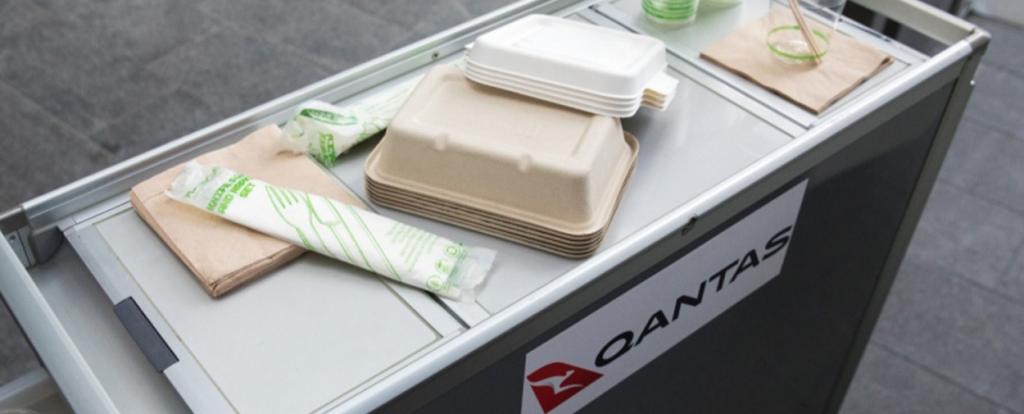
It seems like any other Qantas flight. Passengers board, place their baggage in the overhead lockers and politely find their seats. But this is a dramatically different proposition than the regular morning flight from Sydney to Adelaide. It’s Qantas' – and the world’s – first-ever waste-free flight and it’s serving as a prototype for the future.
The Plan
Dubbed The Bowerbird Project, Qantas aims to eliminate 100 million pieces of single-use plastic from flights by the end of 2021. In so doing, the airline will reduce its waste by a whopping 75 per cent.
The mission is so large that it’s one of Australia’s single biggest waste-reduction initiatives. In order to achieve its lofty goal, Qantas and Jetstar will replace 45 million plastic cups, 30 million cutlery sets, 21 million coffee cups and 4 million headrest covers with green alternatives.
The Flight
On a short domestic trip like this one (flying time one hour, 49 minutes), at least 34 kilograms of waste heads to landfill. This includes plastic cutlery, cups, bottles and food containers, paper napkins, aluminium cans and other single-use items that occupy the meal tray. Qantas’ Green Team cabin crew distributed meals in containers made from sugar cane with cutlery made from crop starch, both of which are compostable and were supplied by Qantas partner BioPak.
Following the meal service, cabin crew collected the waste and sorted it into different streams – reuse, recycle or compost. Qantas partner Suez, which disposes of the airline’s waste, is composting organic material to be used on farms and gardens. Recyclable plastics will be recycled into new products; non-recyclable plastics will be used to create a type of non-fossil fuel called PEF.
This flight was all about trialling products and getting feedback from passengers. Qantas Domestic CEO Andrew David says initially there will be a cost to implement all new products and processes but Qantas has no intention of changing the quality of its service, nor will costs be passed on to customers. And ultimately, he says, it’s the right decision, both environmentally and for the business.
Sounds ideal, but what about that remaining 25 per cent? Well, Qantas is working on it. Currently, there are international laws that require some materials to be disposed of permanently. The airline is involving suppliers and governments to try and reduce that waste.
The verdict
The Bowerbird Project is part of a larger commitment from Qantas to go green. Its achievements already include the largest carbon offset scheme operating in the aviation industry. And last year, the first biofuel flight travelled between Australia and the US successfully.
So, how was the first waste-free flight? The difference is barely noticeable. The only thing that’s truly unbelievable is that we ever thought those tiny, fiddly individual servings of Vegemite and jam were a good idea.
Source: Qantas